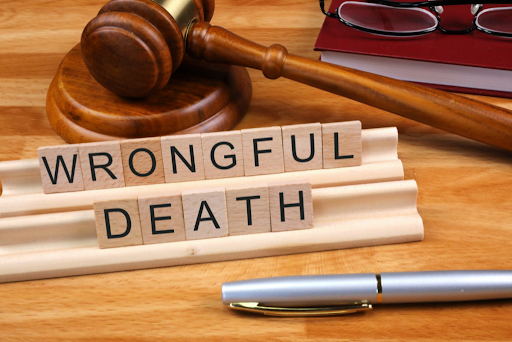New Orleans, with its rich history, vibrant culture, and tight-knit communities, stands out as one of the most unique cities in the United States. However, when it comes to legal matters such as wrongful death claims, navigating the local system can be complex.
Louisiana law is rooted in the state’s civil law system, which differs from the common law system that most states follow. This means that the approach to wrongful death cases may differ from what you might find in other parts of the country.
To file a wrongful death claim, you’ll need an experienced attorney who knows how to handle these types of cases. A wrongful death lawyer can help gather evidence, deal with insurance companies, and guide you through the legal process. If you’re unsure where to start, it’s a good idea to consult wrongful death lawyers in New Orleans who can walk you through every step.
An attorney can make sure you’re not left handling the legal and financial burden alone, especially during such a difficult time.
Here are some steps involved in filing a wrongful death claim in New Orleans.
Gather Essential Documents
Before you even think about filing a wrongful death claim in New Orleans, the first and most critical step is gathering the necessary documentation. These documents act as the backbone of your case and help establish the cause of your loved one’s death and the impact it’s had on your family.
Here’s a breakdown of the documents you’ll need:
- Death certificate
- Medical records
- Accident reports or police reports
- Proof of financial loss
- Bills and receipts of funeral costs, medical expenses, or any other financial burdens you’ve faced due to the death.
As you can imagine, organizing these documents can take time, but the sooner you start, the stronger your case will be. Missing or incomplete documentation can significantly delay the process, so having everything in place is essential.
File the Wrongful Death Claim
Once you’ve gathered all the necessary documents, the next step is to officially file the wrongful death claim. This is where the legal expertise of your lawyer becomes essential. In New Orleans, filing a wrongful death claim involves submitting a formal complaint to the court that details:
- Who passed away, and what was the cause of death
- Who was responsible for the death
- How the death has impacted the family financially and emotionally
This complaint is then filed with the court and served to the party or entity being held responsible. Importantly, in Louisiana, there is a time limit for filing wrongful death claims: you have just one year from the date of death to file your claim. If you miss this deadline, you may lose the right to pursue compensation altogether.
Given the intricacies of Louisiana law and the one-year filing deadline, working with wrongful death lawyers in New Orleans ensures your case is filed promptly and accurately. They understand the local legal landscape and will ensure your claim is filed on time, avoiding any unnecessary delays or errors that could cost you your right to seek compensation.
Attempt to Settle the Case
While going to trial is always an option, most wrongful death cases are settled outside of court. The goal in this phase is to negotiate with the responsible party (or their insurance company) to arrive at a fair settlement that covers your losses.
Keep in mind that the initial offer from the opposing side will likely be low, so having an experienced lawyer to represent you is crucial.
Your lawyer will use the evidence gathered during the investigation to push for a settlement that adequately reflects the impact of your loved one’s death. This includes funeral expenses, medical bills, emotional distress, and the loss of income.
Settlement talks can be long and drawn out, but they often provide a quicker resolution than going to trial. If the settlement offer is too low, your lawyer will not hesitate to reject it and push for a trial. They are there to make sure you get the compensation you deserve.
Proceeding to Trial (If Necessary)
If settlement talks break down or the offer doesn’t meet your expectations, your case may proceed to trial. Going to trial can be a lengthy and emotional process, but sometimes it is necessary to get the justice and compensation your family deserves.
In the courtroom, both sides present their arguments, and the judge or jury will determine who is responsible for the death and how much compensation should be awarded. Your lawyer will present all the evidence supporting your claim, such as medical records, accident reports, and witness testimony, to make the strongest case possible.
During trial, the other party’s legal team will attempt to defend their actions or point out weaknesses in your case. After all evidence is presented, the judge or jury will decide the outcome. While it’s a more formal and intense process, going to trial may be the only way to ensure that the at-fault party is held accountable and that you receive fair compensation.




